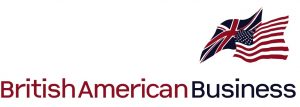
9 July 2018
Full Statement From BritishAmerican Business CEO Duncan Edwards on Recent Brexit Developments and Impact on Future-UK-US Free Trade Agreement
In light of the most recent Brexit developments, Duncan Edwards, CEO of BritishAmerican Business has released the following statement:
UK-US Comprehensive Free Trade Agreement Becomes Less Likely.
If the drama of the world cup quarter finals is not enough for you, then thankfully we have the internal negotiations of the UK Cabinet to get excited about. The all-day ‘off-site’ at Chequers on Friday resulted in the issue of a three-page statement setting out a negotiating position that the whole Cabinet has signed up to and which will be the basis for the much more detailed White Paper due to be published later this week.
As always, full judgement will need to wait for the detailed paper, but the statement seems to solve one problem of concern to transatlantic businesses whilst making it much less likely that there will be a trade deal agreed between the US and the UK.
The proposal envisages that the UK and EU create a free trade area in goods, agriculture and food (as now) with the UK agreeing to accept the EU ‘rule book’ on regulations in these areas as the quid pro quo. If accepted by the EU this would certainly assuage the concerns of manufacturing businesses in the UK with complex, multi-country supply chains, who have been increasingly vocal about their concerns in recent days.
The statement says that the government’s intention is to be free to negotiate third party trade agreements as an independent country but does not explain how they expect to get this done. Trade in goods and food is at the heart of trade agreements and if the UK is locked into the current EU rule book in these areas the discussion with the US is likely to be pretty short.
And maybe that’s fine…we have always maintained that the UK should be striving first and foremost not to end up in a worse position than now vis-a-vis its trade relationship with the US as a result of Brexit; standing pat could be a good outcome.
However, I foresee three problems with this proposal. First, even though this would be a good deal for them, the EU is likely to reject it; they will argue that this is effectively membership of the single market without committing to the ‘four freedoms’, especially free movement of people and they will also demand a regular payment into the EU budget. Second, expect a resounding raspberry from the White House, probably while the President is in London. This US administration loathes the EU and is especially aroused by what it sees as protectionism masquerading as regulation (as well as the high EU tariffs themselves). All the positive talk about the future US-UK trade agreement is likely to go out of the window and we may end up somewhere worse than the status quo ante. Third, and already happening with David Davis’ resignation, people for whom Brexit is about the return of political sovereignty to the UK just won’t support it.
We should wish the UK government the very best of luck with this proposal; muck throwing by commentators isn’t helpful and this is one of the most difficult problems that any government has had to face in decades. Trying to satisfy the validly held positions of the different sides of the argument in the Cabinet and coming up with a proposal that has any chance of being acceptable to the EU is almost impossible. On balance, if this is the agreement that gets done, business should be broadly happy, but the likelihood of failure is high. Early signs from the EU are negative, as expected, but just like their intransigence when Mr. Cameron sought their help before the referendum, the likely outcome is a hardening of opinion in the UK.
###
For a pdf copy of this statement, please click here.
